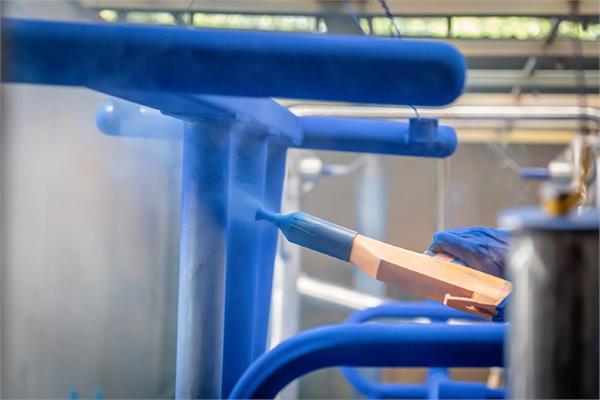
The new additive from Evonik reduces the melt viscosity of powder coating formulations and optimises gloss development and DOI.
The Coating Additives business line of Evonik
has launched TEGO® Powder Aid D01, a new multifunctional polymer additive for powder coating formulations that makes them easier to disperse during extrusion by promoting pigment wetting and effectively reducing melt viscosity.
The lower melt viscosity also leads to better degassing, which aids flow and levelling as the formulation cures and prevents pinholes in the coating. So, the new additive optimises gloss development and ensures better DOI (Distinctness of Image) on the coating surface. In addition, TEGO Powder Aid D01 is particularly versatile, as it can be applied in formulations with inorganic fillers and pigments, along with organic pigments including carbon black.
“Our new product thus offers a wide range of benefits for formulators who desire one multifunctional additive for various powder coating systems. TEGO® Powder Aid D01 generates a large effect in small amounts and acts as a synergist with other additives,” has stated Maximilian Morin, the head of the Industrial & Transportation Coatings market segment of Evonik
TEGO Powder Aid D01 is specifically suitable for HAA curing systems for powder coatings with water being formed as a by-product. Powder coatings containing it also show comparable resistance to weathering, making this additive suitable for use in exterior applications. Finally, the new additive does not contain surface-active waxes, so overcoating is also possible without any problems.
“TEGO® Powder Aid D01 is a new addition to the additive portfolio from Evonik´s Coating Additives Business Line, intended to be extruded into powder coating formulations. The challenge during crosslinking is, that the water needs to escape from the system. This can result in pinholes or small craters in the film. TEGO® Powder Aid D01 prevents pinholes by increasing the degassing threshold and enables the application of thicker coating films,” has explained Bernhard Resch, a scientist from Evonik.